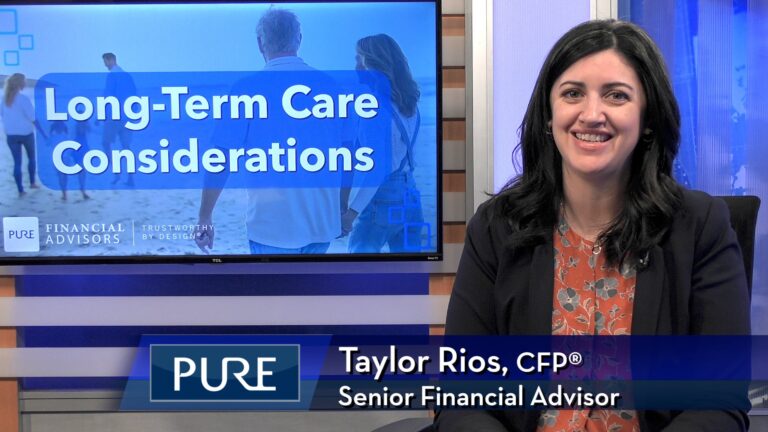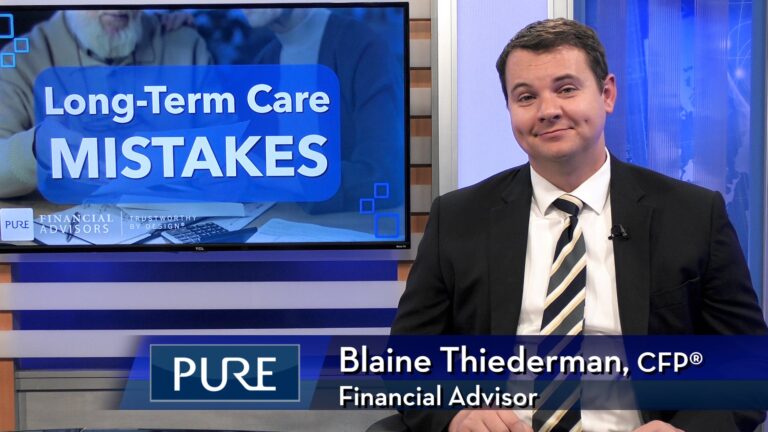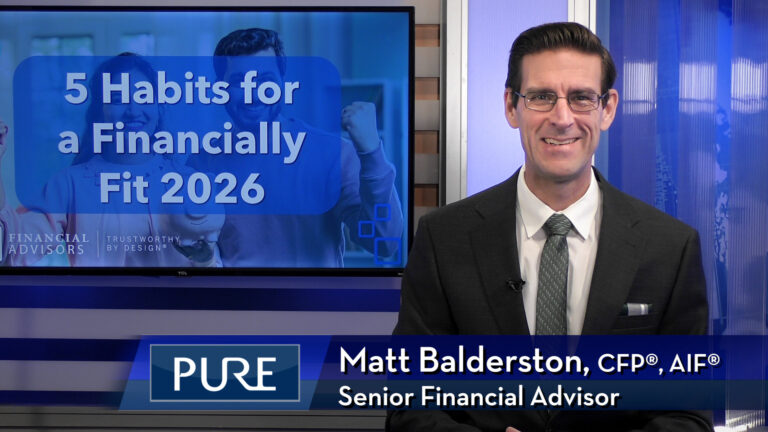Navigating Medicare if you are not familiar with it, can be a little tricky. Pure Senior Financial Planner, Robert Canavan, CFP®, AIF®, covers 5 challenges that he sees clients deal with as they sign up for Medicare – hopefully pointing these out will make your experience a little smoother.
FREE GUIDE | Medicare Checkup Guide
Transcript
Top Medicare Mistakes to Avoid
Today I am going to discuss Medicare and a few common mistakes people make as they enroll.
But first, what is Medicare? Medicare is simply the federal health insurance program for people age 65 and older in the United States. It was established in 1965 by President Lyndon Johnson, and the idea was to provide quality health care coverage for all Americans as they get older.
But to be honest, navigating Medicare if you are not familiar with it, can be a little tricky.
Here are five challenges that I see clients deal with as they sign up for Medicare. Hopefully, as I point these out it will make your experience a little smoother.
#1: When do you sign up? Well, as I mentioned, the magic number is 65. On your 65th birthday you will have a window that will start three months prior to the month you turn 65 and extends three months after the month you turn 65, so effectively, the window is seven months. There will be other windows but not signing up at the right time could affect your premiums forever.
#2: How do you sign up and where do you sign up? Well, when you are ready, you can simply fill out an online application thru the Social Security Administration website, SSA.gov, or if you would like, you can visit your local Social Security Administration office in person.
#3: What plan do I choose? This is where you need to do some research. Medicare has a number of different options. In fact, you can choose what is called Original Medicare, or you can work with a private Medicare Advantage plan – there are pros and cons to both.
#4: Asking the right questions. As you are exploring these plans, you want to make sure of a few things; will I be able to use the same doctor I currently have, and will my prescriptions be covered? This is very important because certain plans have restrictions, so make sure you ask the questions important to you before signing up for a particular plan.
Finally, #5: Costs. What costs do I need to consider? As you head into retirement, obviously budgeting expenses is key, so make sure you understand the costs related to things like deductibles, copayments, and, of course, your premiums.
Knowing the mistakes to avoid will certainly get you started on the right path. Not everyone has the same requirements, and not everyone has the same needs; finding the plan that is right for you is key.
As a reminder – Medicare Premiums are affected by income. There is a two-year look back so understanding the connection between the two is crucial. That is why it’s important to factor in Medicare as part of your overall financial retirement plan.
Be your own advocate and do your research. If you have further questions, you can refer to the Medicare.gov website.
Subscribe to our YouTube channel.
IMPORTANT DISCLOSURES:
• Investment Advisory and Financial Planning Services are offered through Pure Financial Advisors, LLC, a Registered Investment Advisor.
• Pure Financial Advisors LLC does not offer tax or legal advice. Consult with your tax advisor or attorney regarding specific situations.
• Opinions expressed are subject to change without notice and are not intended as investment advice or to predict future performance.
• Investing involves risk including the potential loss of principal. No investment strategy can guarantee a profit or protect against loss in periods of declining values.
• All information is believed to be from reliable sources; however, we make no representation as to its completeness or accuracy.
• Intended for educational purposes only and are not intended as individualized advice or a guarantee that you will achieve a desired result. Before implementing any strategies discussed you should consult your tax and financial advisors.
CFP® – The CERTIFIED FINANCIAL PLANNER™ certification is by the Certified Financial Planner Board of Standards, Inc. To attain the right to use the CFP® designation, an individual must satisfactorily fulfill education, experience and ethics requirements as well as pass a comprehensive exam. Thirty hours of continuing education is required every two years to maintain the designation.
AIF® – Accredited Investment Fiduciary designation is administered by the Center for Fiduciary Studies fi360. To receive the AIF Designation, an individual must meet prerequisite criteria, complete a training program, and pass a comprehensive examination. Six hours of continuing education is required annually to maintain the designation.












